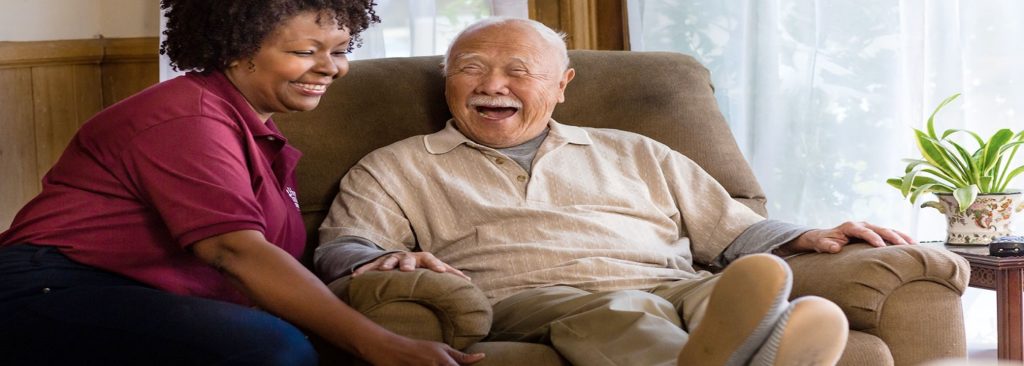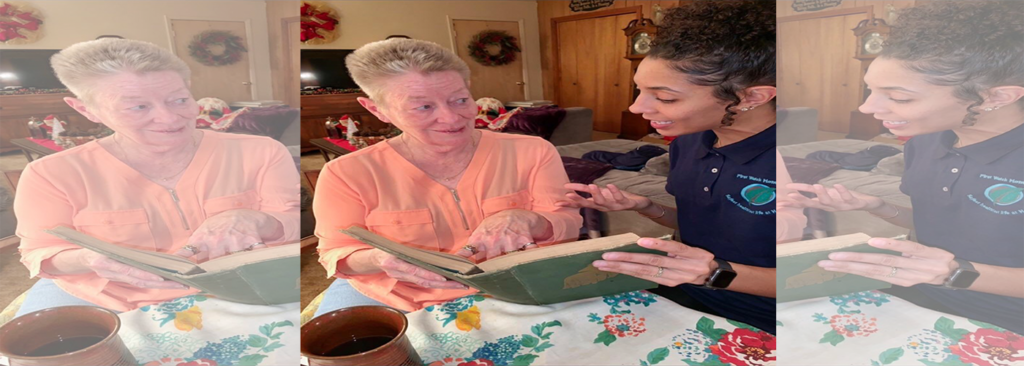Stepping Up During COVID-19

First Watch Home Care at the Heart of COVID-19 Pandemic
COVID-19 outbreak raised significant concerns worldwide, particularly for older adults who were identified as one of the most vulnerable populations. Data from early outbreaks in China and Italy showed that seniors faced higher risk of contracting the virus and experienced severe complications.
According to a March 4th analysis by the National Health Institute, the average age of patients who died from the virus was 81. Crucial factors such as advanced age, weakened immune systems, and underlying medical conditions made seniors more susceptible to both contracting and struggling to recover from the virus.
This is why at First Watch Home Care, we recognized the unique challenges seniors faced during this unprecedented time.
Our mission was clear: to ensure the safety, well-being, and peace of mind of our clients.
Key Considerations about seniors and COVID-19
- Older Adults Were More Vulnerable: Age alone increased susceptibility to respiratory illnesses like COVID-19.
- Weakened Immune Systems Played a Role: As people aged, their immune systems naturally weakened, making it harder for them to fight off infections.
- Underlying Conditions Exacerbated Risks: Chronic illnesses such as diabetes, heart disease, and lung conditions further increased the likelihood of severe symptoms.
- Limited Access to Information Was a Barrier: Many seniors relied on traditional news sources or lacked access to digital platforms, leaving them uninformed about evolving guidelines.
How we Supported Seniors
- Shared Reliable Information: We ensured seniors received accurate updates from trusted sources like the Center for Disease Control and Prevention (CDC) or World Health Organization (WHO).
- Simplified Complex Details: We broke down complex health advice into simple terms so seniors could easily understand and act on it.
- Checked Supplies Regularly: We ensured seniors had enough food, water, medication, and other essentials to last several weeks.
- Assisted with Shopping: When possible, we helped with grocery shopping or arranged delivery services to minimize their exposure to crowded places.
- Promoted Responsible Stockpiling: We reminded everyone to avoid hoarding supplies unnecessarily, ensuring there was enough for those who needed it most.
- Taught Proper Handwashing Techniques: We encouraged frequent handwashing with soap and water for at least 20 seconds. Alcohol-based hand sanitizers were used when soap wasn’t available.
- Disinfected High-Touch Surfaces Daily: We cleaned commonly used items like doorknobs, phones, and countertops to reduce contamination risks.
- Educated About Symptoms: We explained common signs of infection, including fever, persistent cough, and difficulty breathing.
- Set Up Regular Check-Ins: We scheduled daily calls or visits (while maintaining safe distances) to monitor their health status.
- Provided Guidance on Seeking Help: We advised contacting Telehealth Ontario or healthcare providers immediately if symptoms appeared. Hospital visits were avoided unless absolutely necessary to reduce exposure risks.
Promoting Emotional Well-Being

- Fought Isolation: Loneliness can worsen physical and mental health. We stayed connected via phone calls, video chats, or even written letters.
- Promoted Positive Activities: We encouraged hobbies, puzzles, or light exercises to keep their minds active and spirits high.
- Offered Reassurance: We reminded them that they were valued and supported during these challenging times.
Why Everyone Took Precautions
Even young and healthy individuals understood that their actions directly impacted the safety of vulnerable populations, including seniors. During the pandemic, we emphasized these general recommendations that helped individuals to protect not only themselves but, also those around them, particularly seniors and individuals with compromised immune systems.
- Avoided Close Contact: Maintaining at least six feet of distance from others, especially in public spaces, became standard practice.
- Wore Masks Appropriately: Covering both nose and mouth in situations where physical distancing was difficult was crucial.
- Stayed Home When Sick: Leaving the house with any cold-like symptoms, no matter how mild, was strongly discouraged.
What We Did When Symptoms Developed
- Contacted Telehealth Services: We reached out to professionals who provided guidance without requiring in-person visits.
- Followed Medical Advice: We adhered strictly to instructions provided by healthcare providers regarding testing, quarantine, or treatment.
- Prepared for Emergencies: We knew the signs of severe illness, such as bluish lips, chest pain, or confusion, which warranted immediate medical attention.
Through our efforts, we created a safer environment for seniors, helping them navigate the challenges of the pandemic with confidence and care.
The fight against COVID-19 required collective effort. By staying informed, supporting seniors, and practicing preventive measures, we significantly reduced the spread of the virus in our own way in Arlington Texas.
At First Watch Home Care, we took pride in our ability to provide compassionate care and tailored solutions during this crisis.
Small acts of kindness—like checking in on a neighbor or helping someone carry groceries—made a big difference. Together, we built resilience within our communities and ensured brighter days ahead. For more information or assistance, reach out to First Watch Home Care anytime. Together, we kept hope alive and supported those who needed us most.
